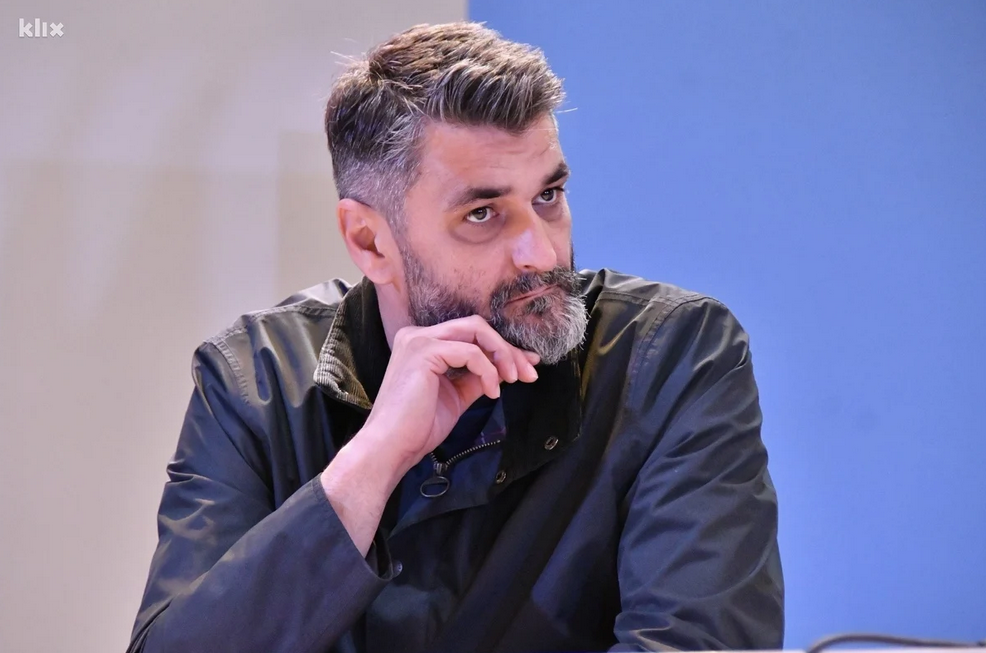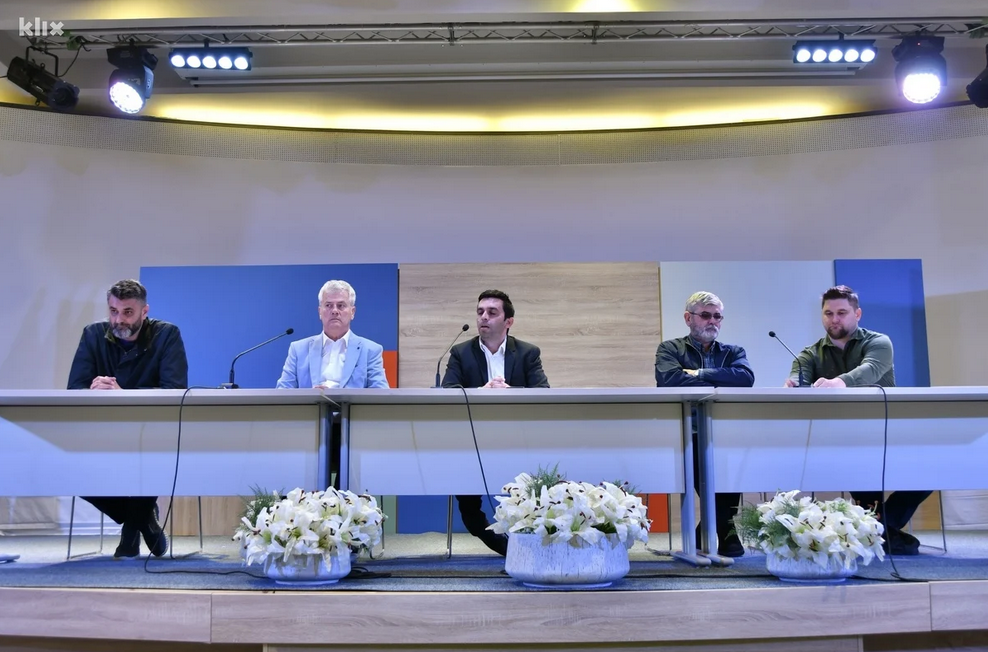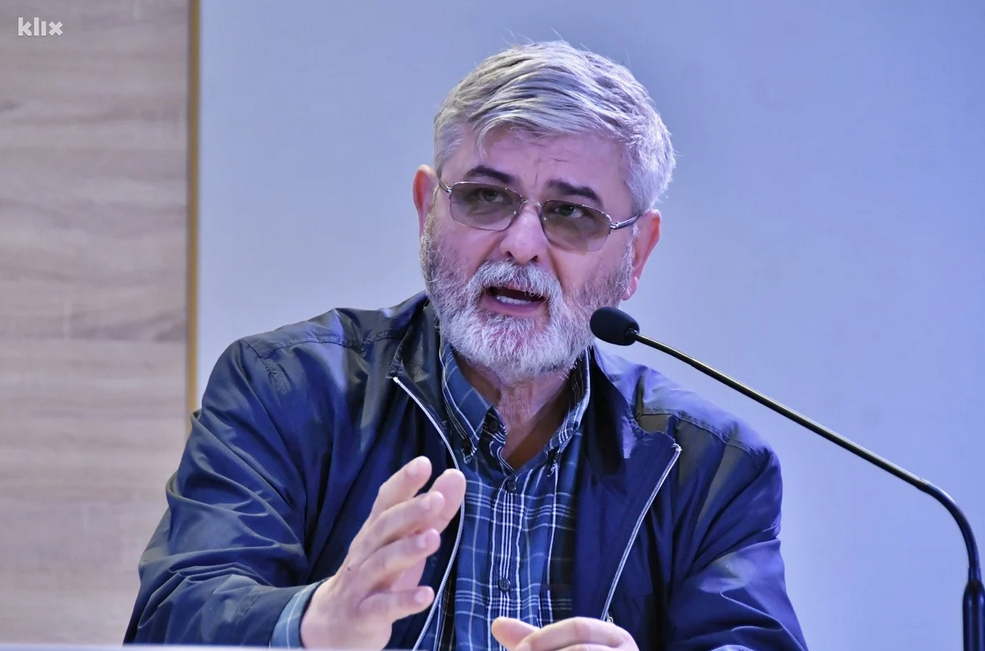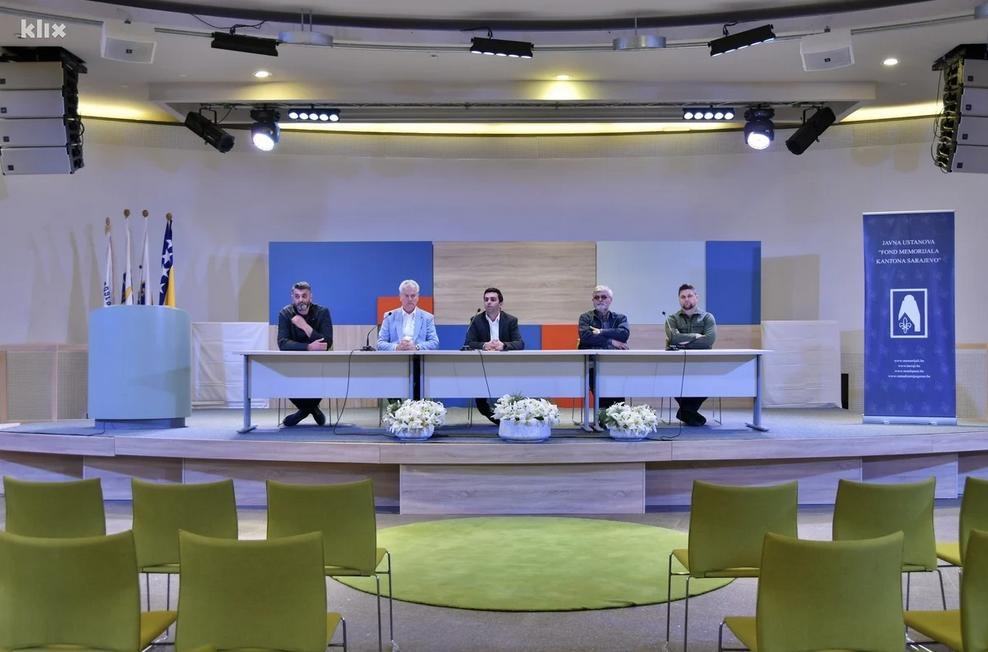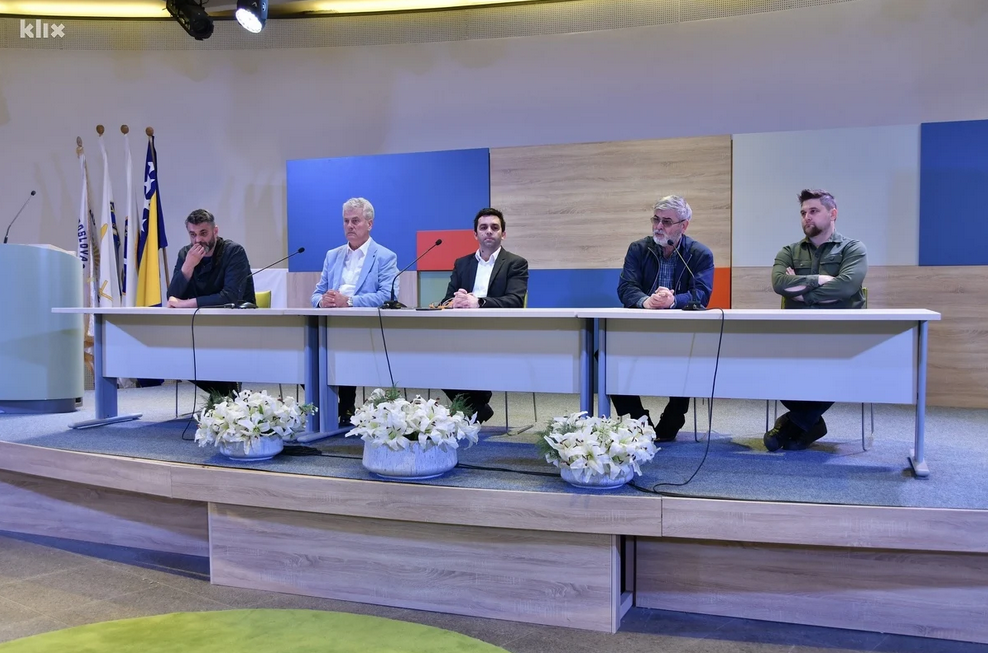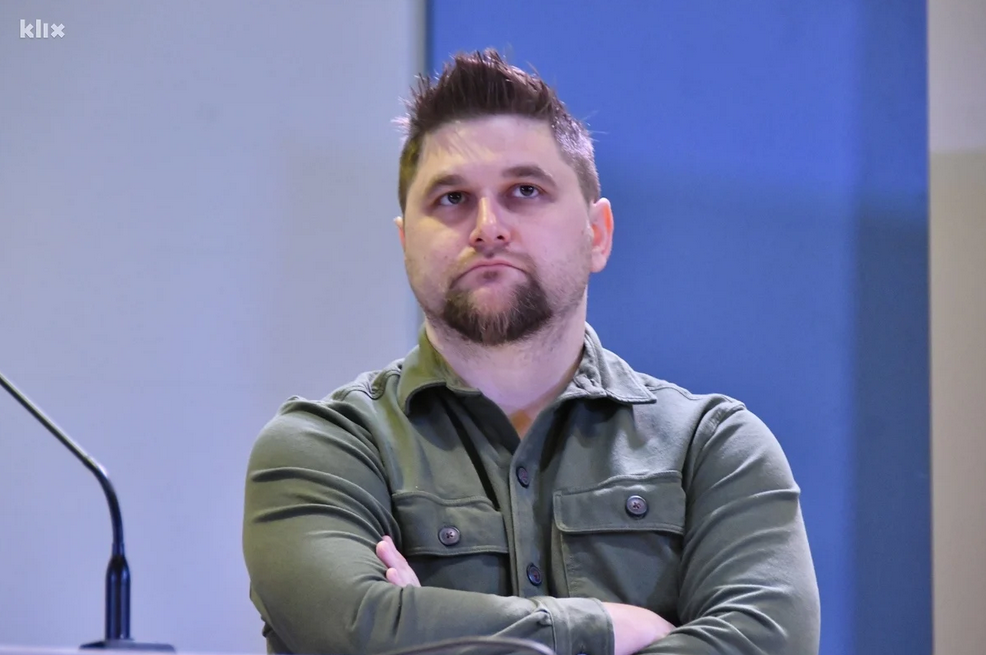Source: Klix.ba
In the premises of the KS Memorial Fund, a press conference was held regarding the information that the Municipality of Bratunac intends to carry out the reconstruction and rehabilitation of four halls of the Agricultural Cooperative in Kravica, the site of the first mass execution on July 13, 1995, where more than 1,000 Bosniak civilians were killed.
So that this uncivilized and inhumane act would not remain outside the knowledge of the general public and in order to raise awareness of the plan to hide the traces of mass crimes, representatives of institutions whose activity is promoting and nurturing the culture of memory addressed the public.
Ahmed Kulanić, director of the KS Memorial Fund JU, Amor Mašović, former director of the Institute for Missing Persons of Bosnia and Herzegovina, Rasim Muratović, director of the Institute for Research of Crimes against of humanity and international law at the University of Sarajevo, Hikmet Karčić, independent researcher of genocide and war crimes, and Emir Suljagić, director of the Srebrenica Memorial Center.
"The importance of preserving these places is really reflected in the fact that they represent permanent witnesses of the suffering of Bosniaks and living witnesses of everything that Bosniaks in the entire territory of Bosnia and Herzegovina survived during the period of aggression," said Ahmed Kulanić and concluded that this inhuman act that we are witnessing aims at the permanent removal of all witnesses, of all crimes in Bosnia and Herzegovina, starting from the areas of eastern Bosnia, eastern Herzegovina, Krajina, where no civilized way of marking suffering is allowed.
When it comes to Kravica, according to historical documents, according to the testimonies of the surviving executioners in Kravica, according to the testimonies of the perpetrators and commanders of the crimes in Kravica, the crime of genocide took place in Kravica and it is the largest execution ground in Europe after the Nazi crimes in the Second World War.
"The very intention to do anything under the pretext of rehabilitating the Zadruga facility in Kravice is extremely morbid," said the former director of the Institute for the Missing in Bosnia and Herzegovina, Amor Mašović, adding that it is about rehabilitating when there are still more than 250 boys, young men, and men in the execution ground. in Kravica was not located, was not found, was not identified and was not handed over to their families.
"Stop these attempts by your fathers, your neighbors, to continue to impose collective responsibility and collective guilt on an entire nation. The perpetrators of crimes are those who stigmatize a nation, who try to hide their cowardice behind the collective responsibility of an entire nation," said Bratunca Mašović to the young people .
Director of the Institute for Research of Crimes Against Humanity and International Law of the University of Sarajevo, Rasim Muratović pointed out that the intentions of the authorities in Bratunac are a continuation of Milošević's mantra.
"Milošević stated at the trial in The Hague that everything concerning Bosnia and Herzegovina was a pure lie, on the other hand, his ideologues said that everything they planned they did, and everything they did they would not admit. So, according to them, there was no neither murders, nor injuries, nor expulsions, nor rapes, nor concentration camps, nor destruction, nor collective suffering, there was nothing," he said.
Muratović specifically referred to the lack of adequate reaction of non-governmental organizations, which in other cases were very thorough and persistent when it came to choosing the very size and type of letters on certain monuments at the places of suffering, and said that one should not be selectively consistent and selectively persistent to places of suffering are marked and called on them to respond adequately to the intentions to completely destroy a place of suffering.
Director of the Institute for Research of Crimes Against Humanity and International Law of the University of Sarajevo, Rasim Muratović, pointed out that the intentions of the authorities in Bratunac are a continuation of Milošević's mantra.
"Milošević stated at the trial in The Hague that everything concerning Bosnia and Herzegovina was a pure lie, on the other hand, his ideologues said that everything they planned they did, and everything they did they would not admit. So, according to them, there was no neither murders, nor injuries, nor expulsions, nor rapes, nor concentration camps, nor destruction, nor collective suffering, there was nothing," he said.
Muratović specifically referred to the lack of adequate reaction of non-governmental organizations, which in other cases were very thorough and persistent when it came to choosing the very size and type of letters on certain monuments at the places of suffering, and said that one should not be selectively consistent and selectively persistent to places of suffering are marked and called on them to respond adequately to the intentions to completely destroy a place of suffering.
"If we were to commemorate every place where crimes were committed on the territory of today's RS entity, there would be no working elementary schools, no working high schools, no working gymnasiums, and no working police stations, because all the infrastructure was used for detention , imprisoning and killing people," said Suljagić.
At the end of the speech, it was said that this is not only a Bosnian or Bosniak problem, but that the institutional destruction of places of mass executions is also a European problem.
The participants called on the international community, competent state institutions and ambassadors of foreign countries, especially those countries that award grants, to react adequately and sanction all those who support and facilitate the destruction and conversion of places of mass executions and suffering.
Photo: I.Š./Klix.ba

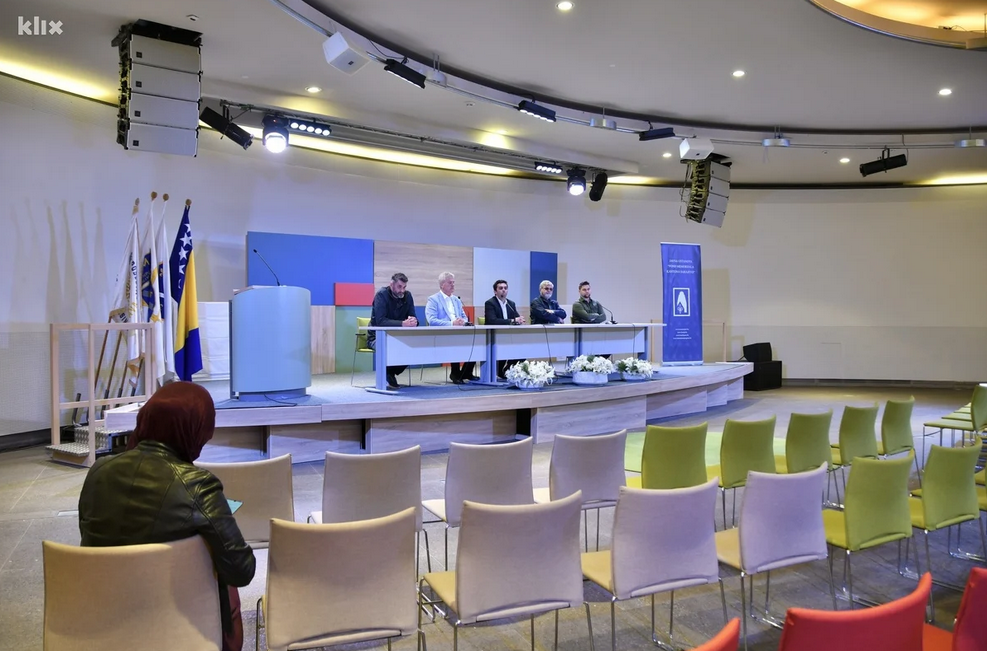
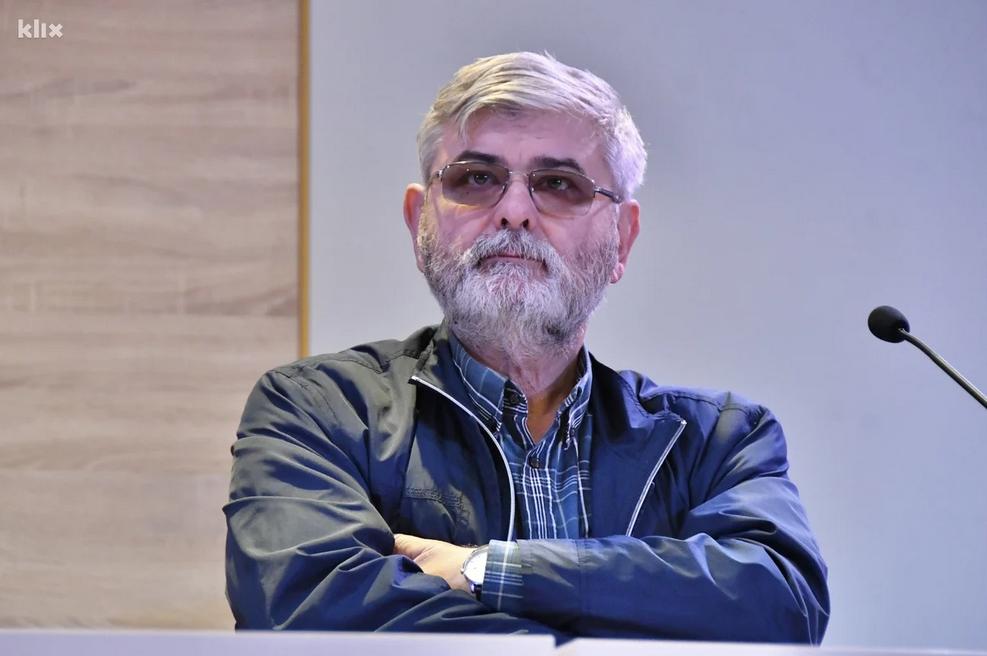
.PNG)
